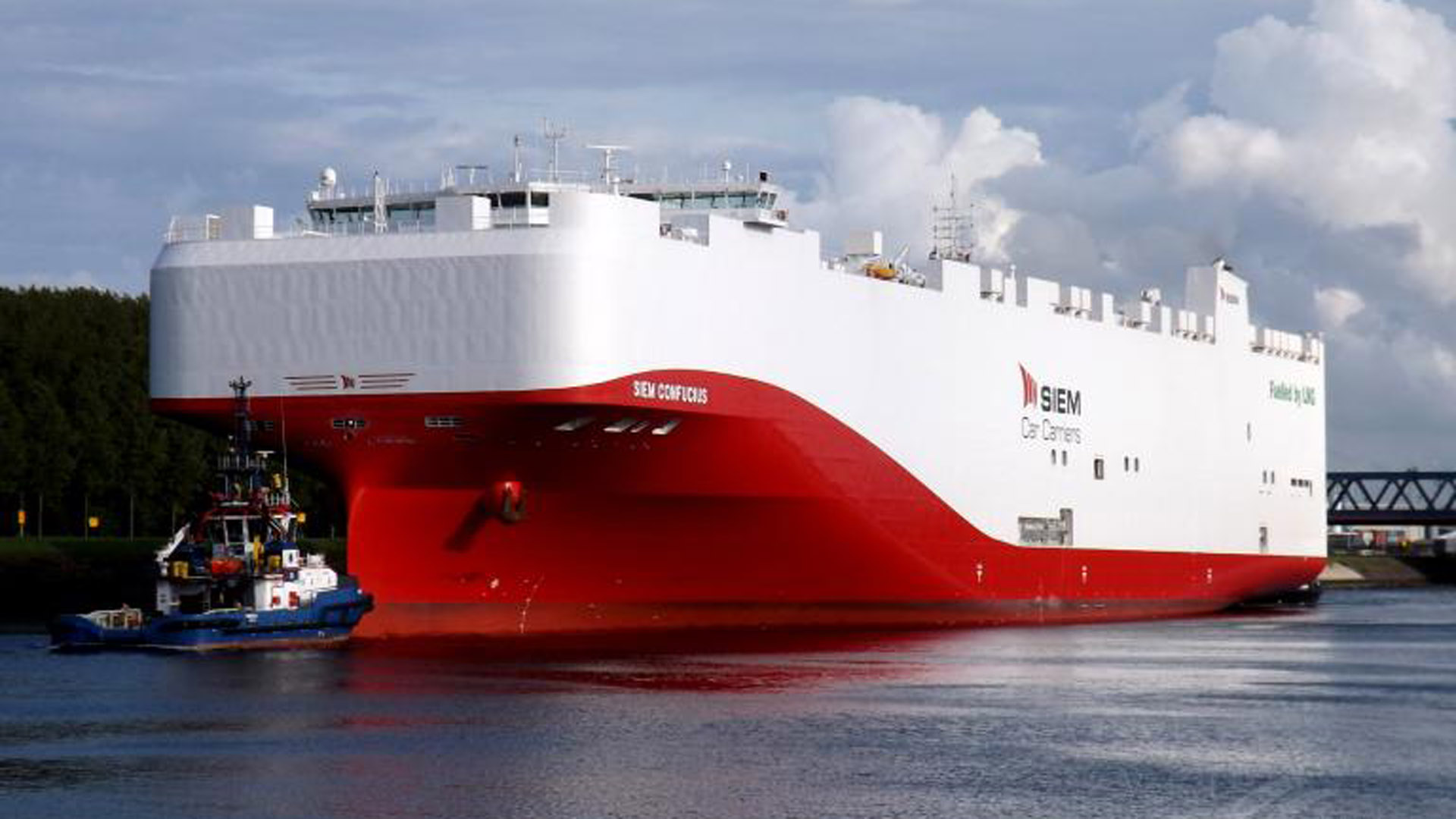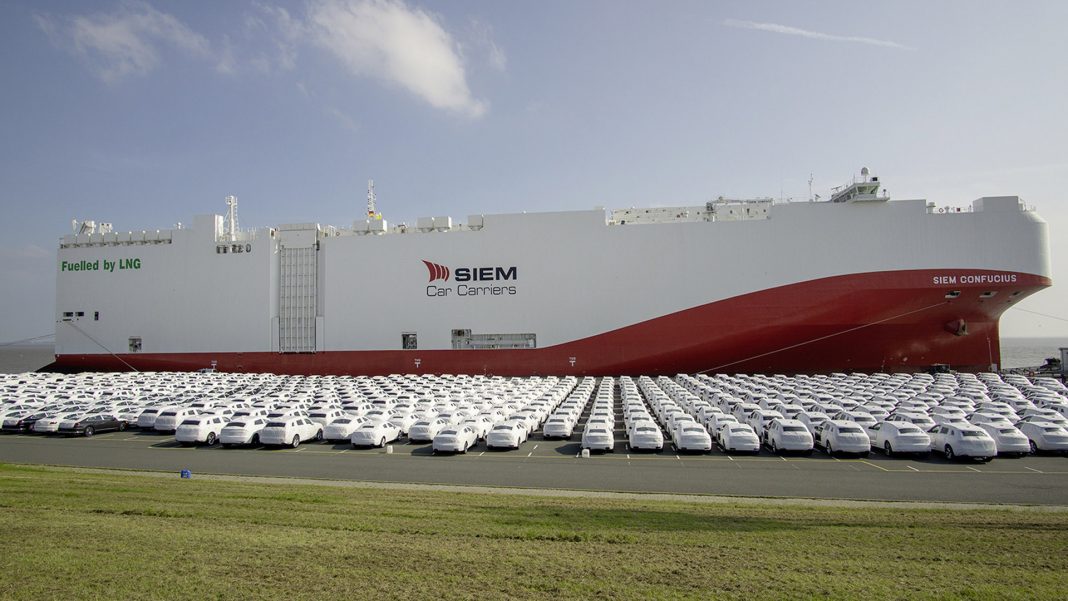For the first time, Volkswagen vehicles freighted from Europe to North and Central America will be transported in a liquefied natural gas (LNG)-powered ship – the Siem Confucius.
Capable of holding over 4,800 vehicles in its cargo bay, the ship is vital for the German automaker to get its cars from Emden, a City in northwest Germany, to Veracruz in the Gulf of Mexico – one of the oldest and largest ports in the country.
Read next: Aiways sends its first shipment of its U5 electric SUV to Europe
The LNG system reduces carbon dioxide emissions by up to 25%, nitrogen oxide emissions by up to 30%, soot particles by up to 60% and sulphur oxide emissions by up to 100% – incredible.
“We are proud to put the world’s first LNG vehicle transporter of this size into service. This is an important part of our decarbonisation strategy,” emphasises Thomas Zernechel, Head of Volkswagen Group Logistics.

Buy a car phone mount on Amazon (Affiliate)
By 2025, the company aims to reduce its total net CO2 emissions by 30% and wants to be carbon-neutral by 2050 – it’s part of Volkswagen’s “goTOzero” goal. As such, the manufacturer’s vehicles, be it by water, road and rail set to be climate-friendly. “We have to take action now, because ships like the LNG freighter Siem Confucius and soon its sister ship Siem Aristotle will be in service for many years,” says Zernechel.
The Siem Confucius is 200 metres long and 38 metres wide, has 13 car decks and a capacity of 7,500 CEU (Car Equivalent Units), which corresponds to around 4,800 mixed vehicles from Volkswagen.
The ship is powered by 12,600 kW dual-fuel marine engines with direct injection and exhaust gas after-treatment from Man Energy Solutions. In eco-mode, they travel at a speed of 16.5 knots (30.6 km/h).
Read next: What is an EV? Everything you need to know about hybrid and electric vehicles
Its two tankers hold 1,800 cubic metres of fuel each, which is enough to cover the entire journey with Europen-supplied fuel. In addition to liquid, deep-frozen natural gas, the ship can be operated with biogas or E-gas from regenerative sources too.
Volkswagen Group Logistics organises, coordinates and is responsible for around 7,700 ship departures every year. Several hundred liners and eleven car freighter charter ships, two of which are now being replaced by the LNG units, sail the world’s oceans for the automaker every day. They ship 2.8 million new cars every year.





